Baby Doll (1956)
“I”m always glad to know something when there’s something to know.”
|
Synopsis: |
|
Genres, Themes, Actors, and Directors:
Response to Peary’s Review: He writes that “dumb, bigoted, middle-aged cotton-gin owner Archie Lee (Karl Malden has problems,” and describes what happens after “Archie secretly burns down Vicarro’s mill” and Vicarro “comes to Archie’s house when he’s not home and proceeds to seduce Baby Doll, who doesn’t put up much resistance.” Peary notes that “Vicarro’s expressions and movements will at times remind you of a sneaky fox” who is “too clever for the naive Baby Doll, one of many Williams heroines who are betrayed by men supposedly befriending them.” He further adds that “the unknown Baker became a sex symbol as a result of this film,” given “she never is seen wearing less than a slip” and “lies in a crib and sucks her thumb.” To that end, “Cardinal Spellman and the Legion of Decency condemned this film when it was released” — and “surely those who criticized it on moral grounds didn’t think the scene in which Vicarro rubs the merrily squirming Baker’s tummy with his foot was in good taste.” However, Peary points out that “it’s a perfect example of how Kazan uses sex in an intentionally ludicrous manner, making it a key element in what is much like an absurdist play;” he adds that “Williams believed that Kazan could have played up the humor even more.” Peary notes that the film co-stars Mildred Dunnock as Aunt Rose Comfort: … but he doesn’t mention a notable cameo with Rip Torn as a smiling dentist who enjoys flirting with Baker: While this movie isn’t a personal favorite — I’m not a fan of films about young women being used as pawns by men — it remains noteworthy for its erstwhile notoriety and for Baker’s breakthrough performance, and should be seen at least once by film fanatics. Notable Performances, Qualities, and Moments: Must See? Categories
Links: |
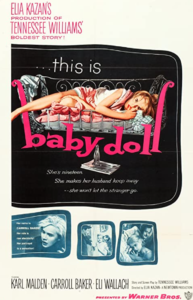
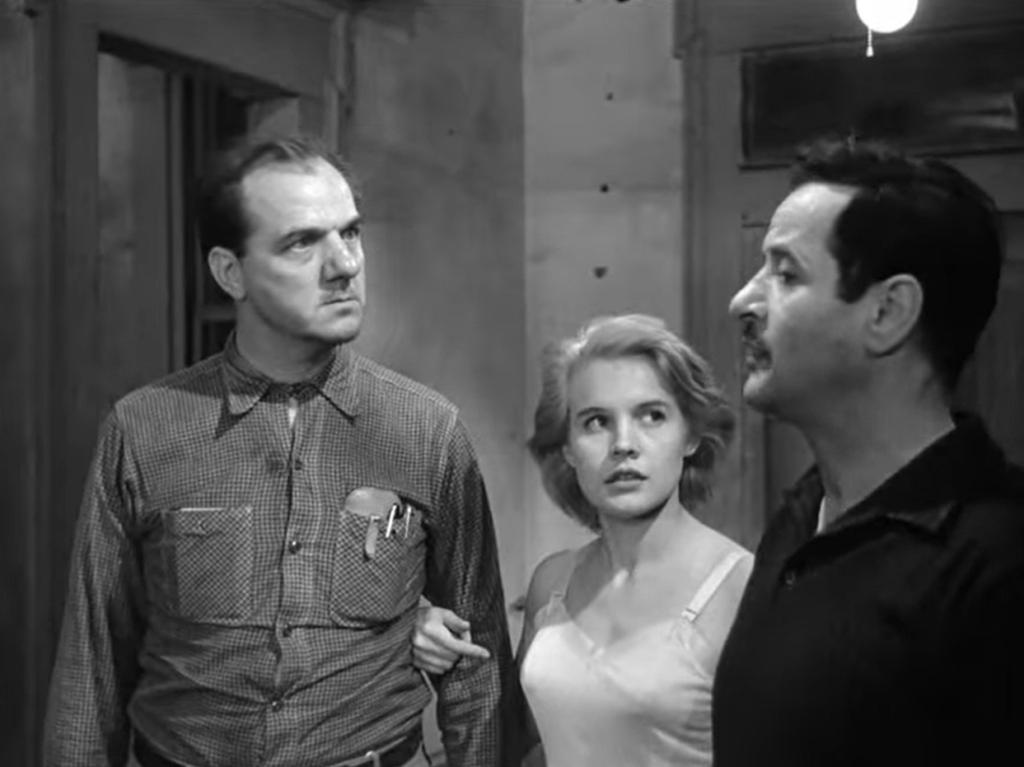
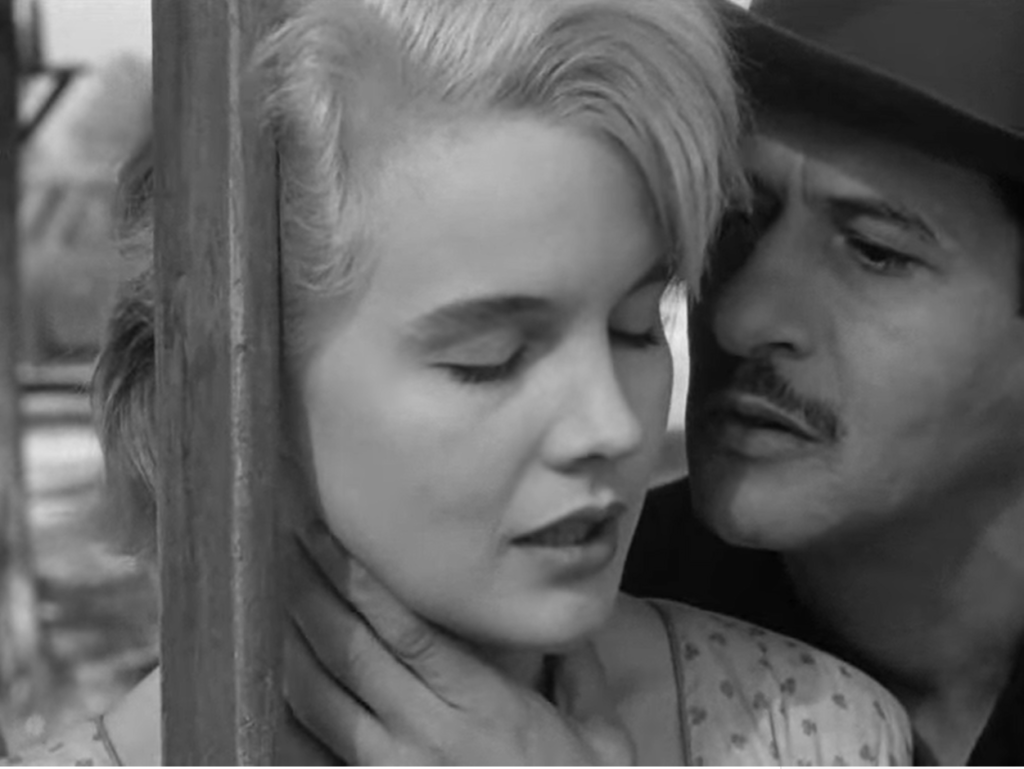
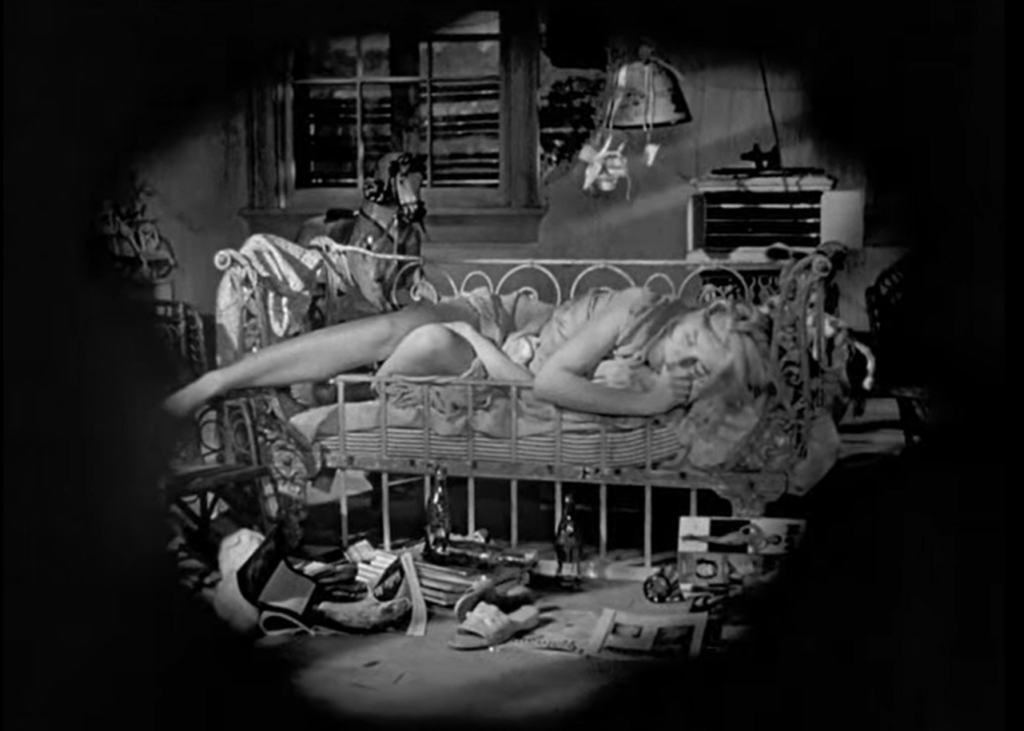
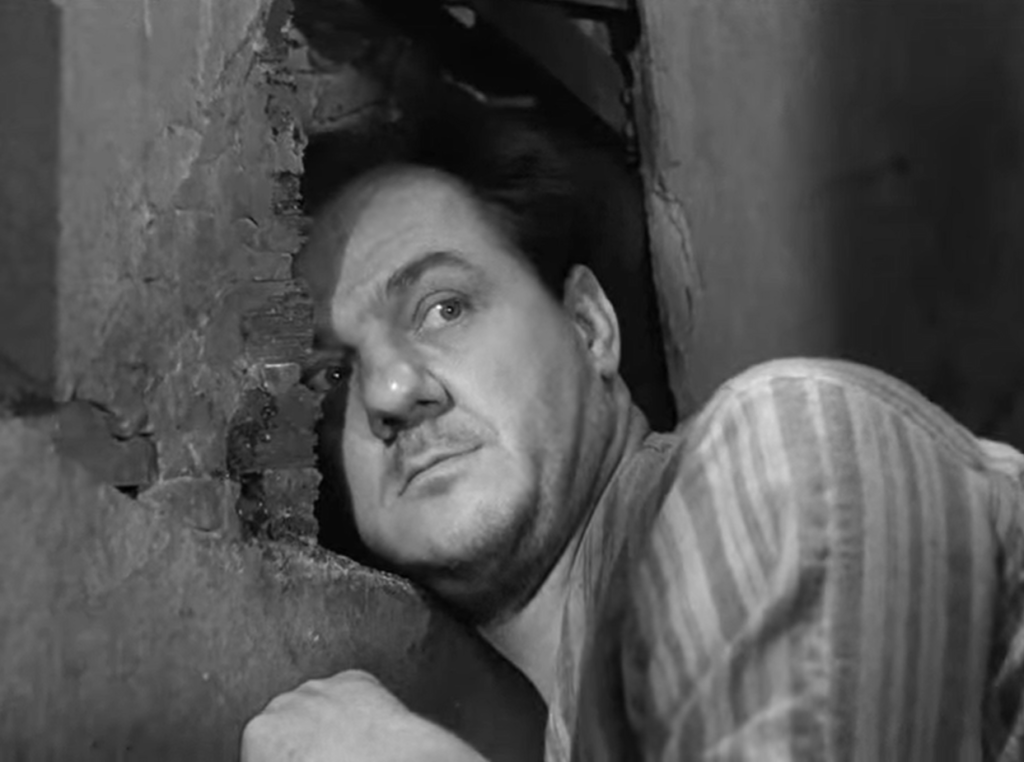
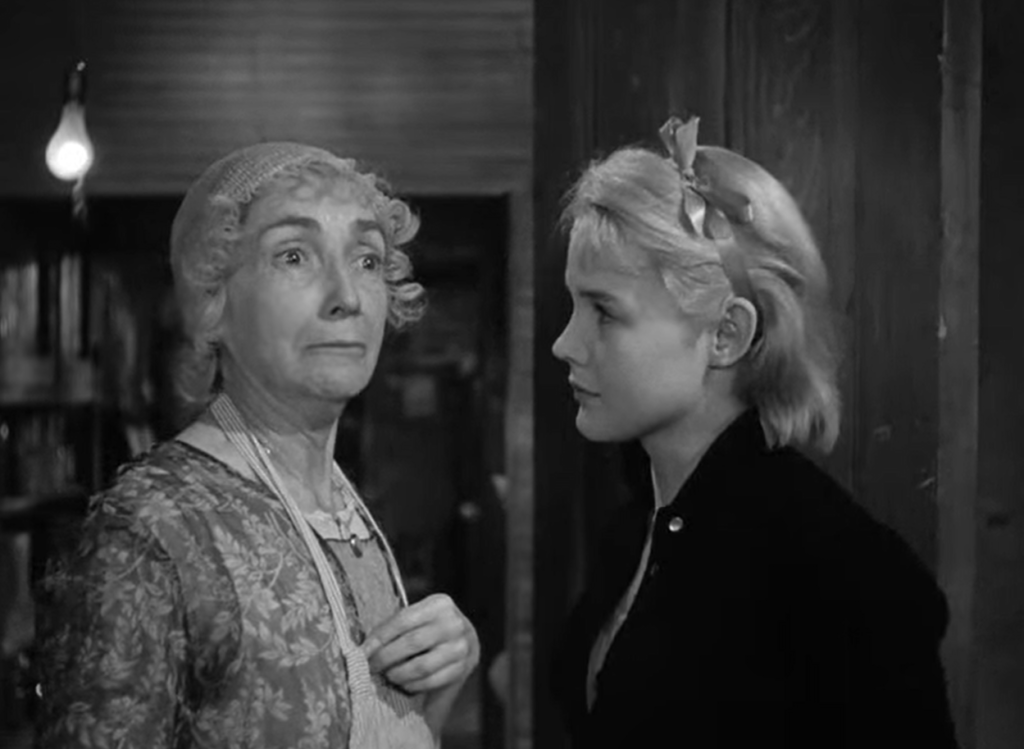
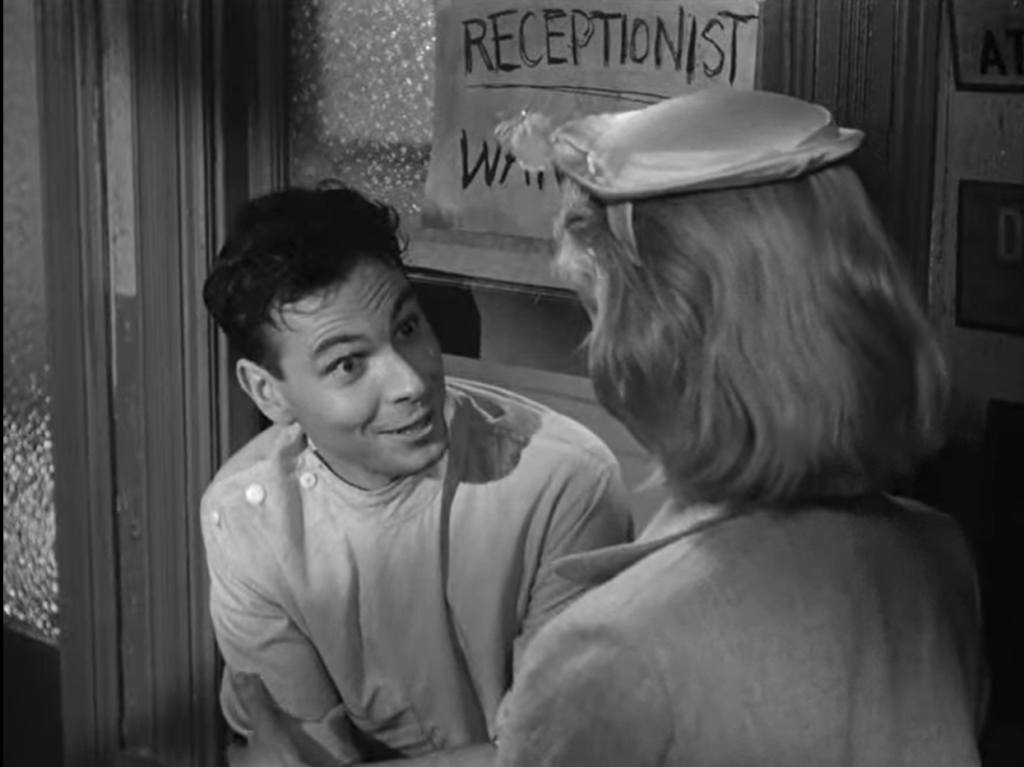
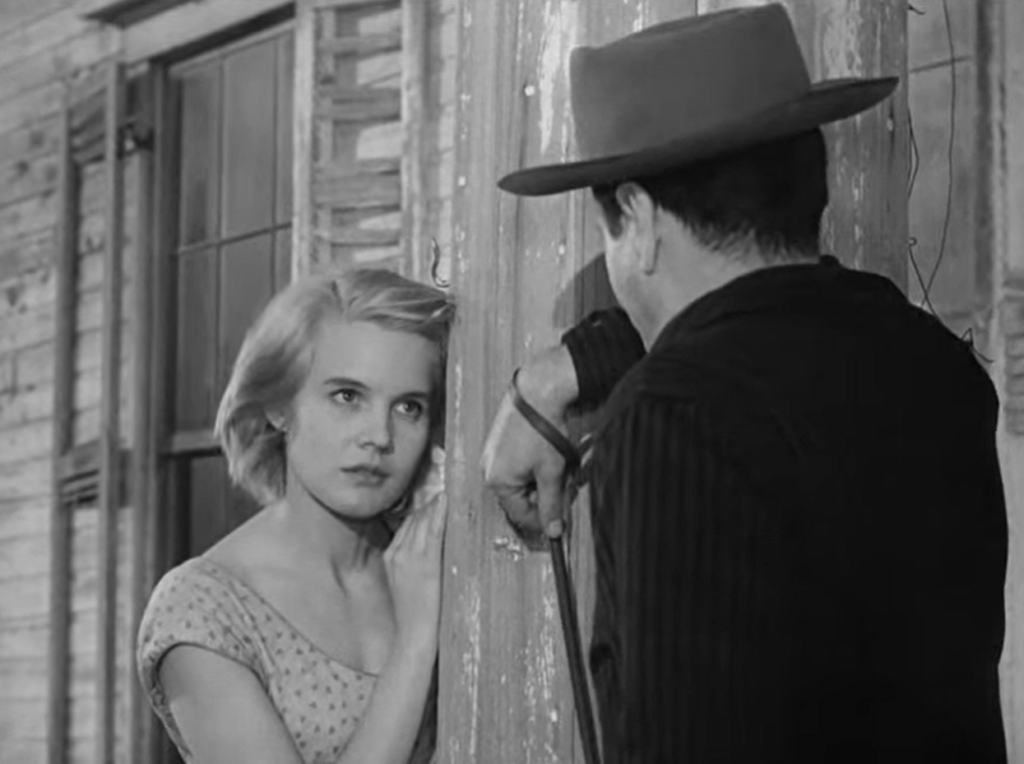
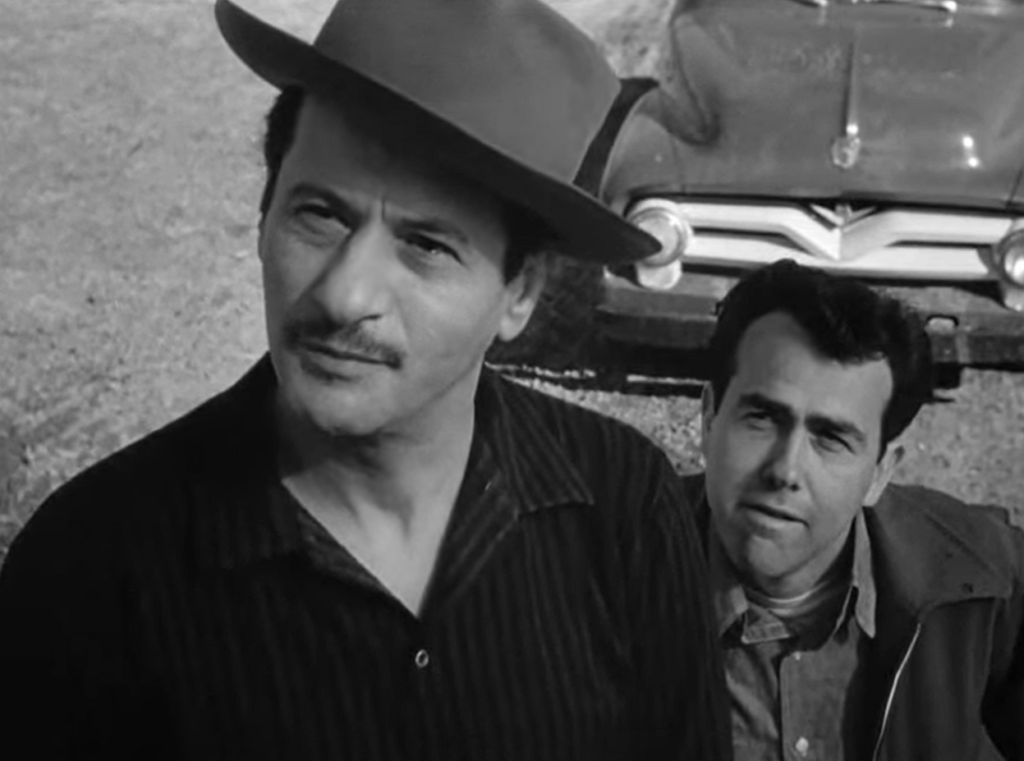
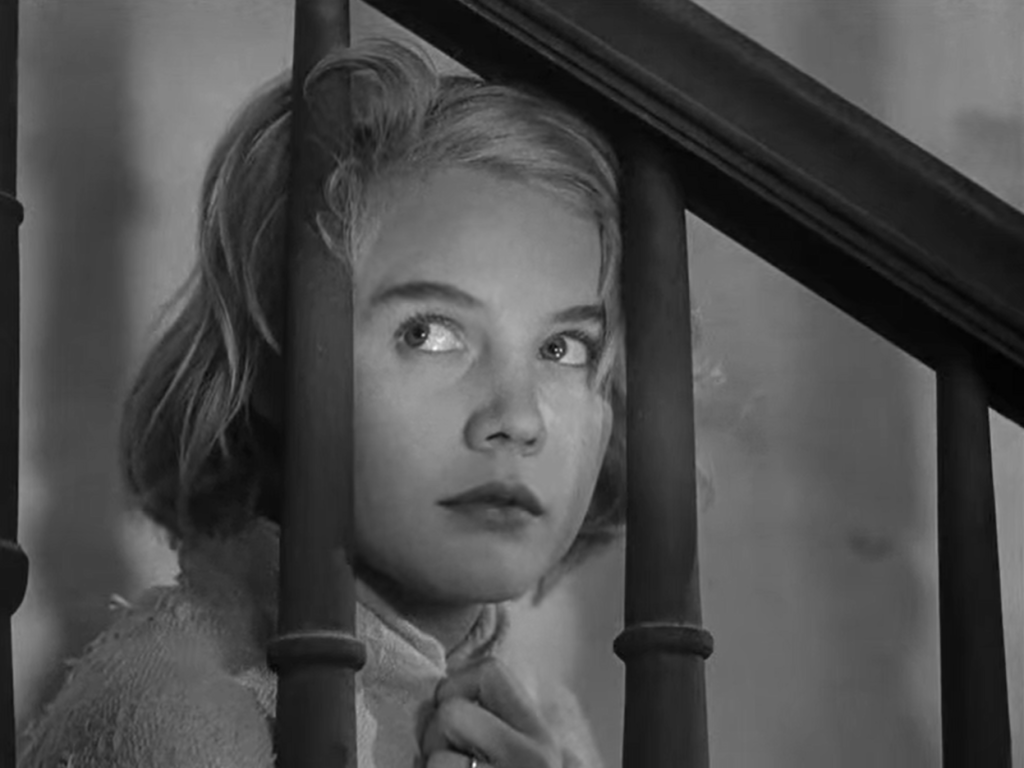
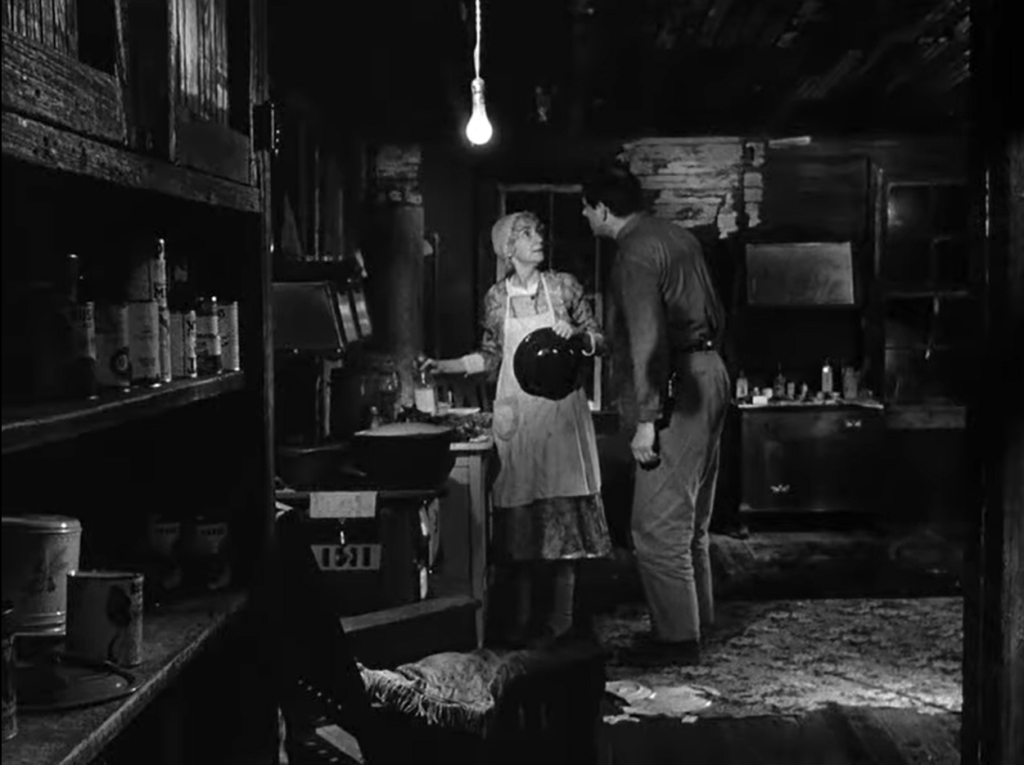
One thought on “Baby Doll (1956)”
Must-see – as a significant film by both Kazan and Williams, and for the performances. As per my 8/15/21 post in ‘The ’40s-’50s in Film’ (fb):
“I’ve been to school in my life. And I’m a magazine reader.”
‘Baby Doll’ (1956): When it was released, this still-delicious black comedy of sweet revenge was *the* ‘dirty movie’ in town. Of course, its ad campaign – with Carroll Baker prone in a crib, sucking her thumb – did more than it could to encourage lascivious thoughts. (To add to that… in the film itself, Karl Malden is seen looking through a peephole in a clawed-through wall, watching Baker sleep.)
To hear the Catholic Church getting its panties in a bunch over it, you would think the film was a precursor to ‘Deep Throat’. But, of course, in the ’50s, a film didn’t have to be as much as 1/32nd of what ‘Deep Throat’ was. All you had to do to become a film ‘Condemned’ by the Legion of Decency was… suggest.
And ‘Baby Doll’ – at least in one major scene with Baker and Eli Wallach in a swing – does suggest. It remains one of the sexiest scenes in cinema history. But, outside of some low tones on Wallach’s part and a little sensual wooziness on Baker’s, nothing all that sexual happens.
To counter what the hysterical Cardinal Spellman had to say on the subject, James A. Pike of NY’s Episcopal Cathedral of St. John the Divine pointed out that there was more sensuality in ‘The Ten Commandments’ than there was in ‘Baby Doll’.
But caving to Catholic pressure, producer Jack Warner pulled the film from theaters soon after it opened.
Oddly, in his memoir, director Elia Kazan claimed credit for most of the writing of the Tennessee Williams script (!). Williams claims otherwise. What’s on TW’s side are two things: 1) Nothing in Kazan’s writing history indicates at all that he could write *anything* bearing the very particular tone of ‘BD’. 2) ‘BD’ sounds completely like TW from start to finish.
When I moved to NYC in the late ’70s, one of the first Broadway shows I saw was Meryl Streep in a revival of ’27 Wagons Full of Cotton’ (the source material for ‘BD’). She was, of course, phenomenal as the virginal Baby Doll. But Baker is no slouch; she glides through the role with the texture of a honey glaze.
Malden’s performance as the frustrated Archie is a Master Class in vanity-free acting. As Silva, Wallach is as cool-headed as he is calculating.